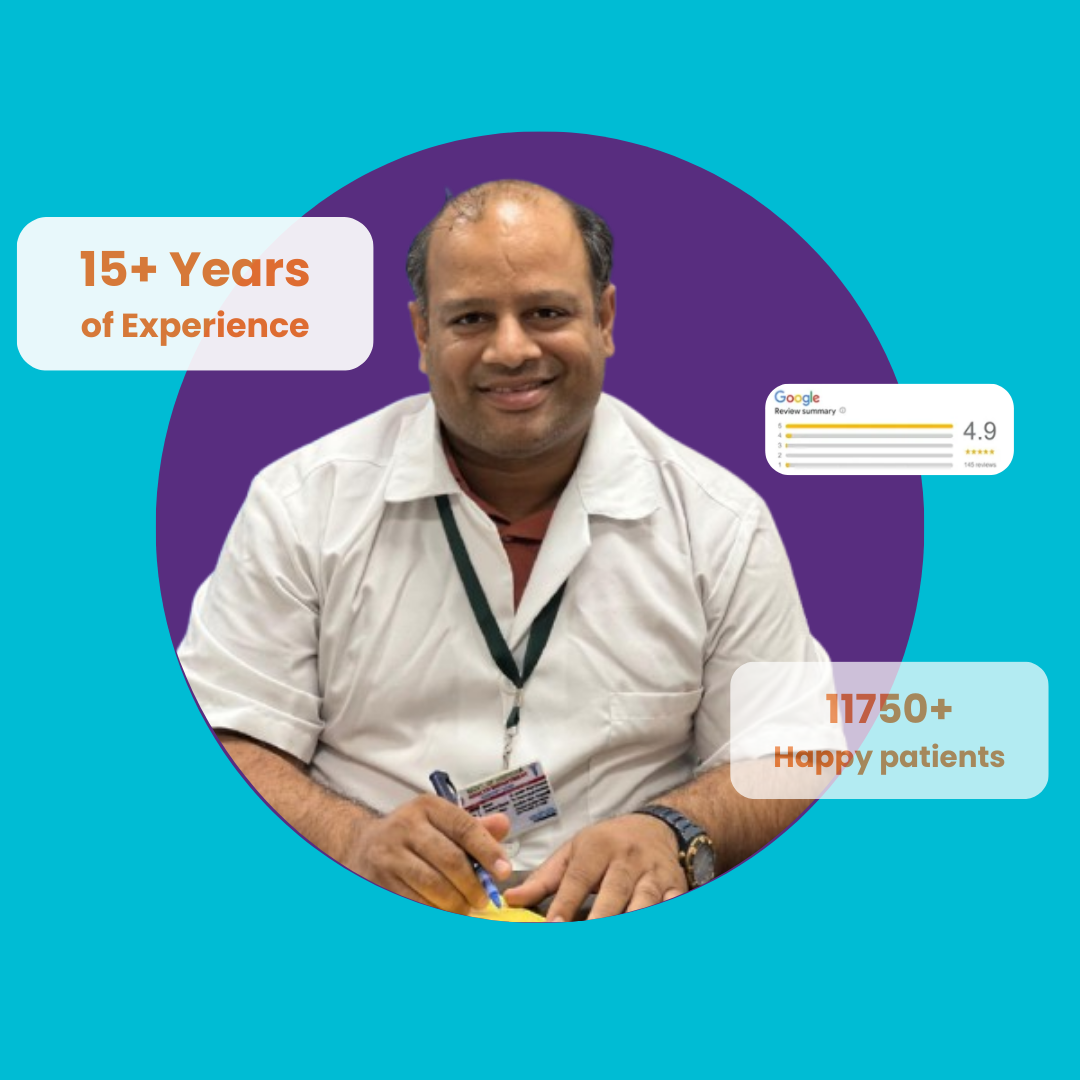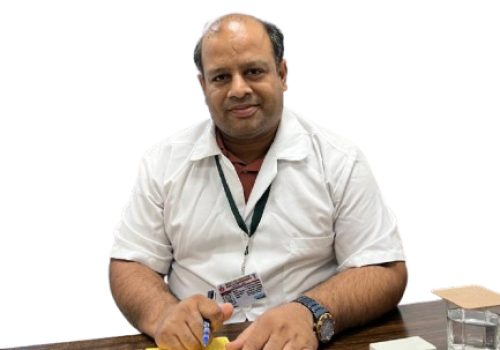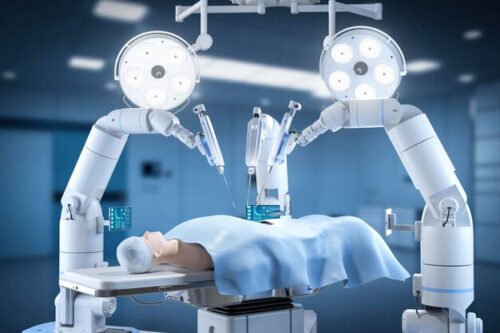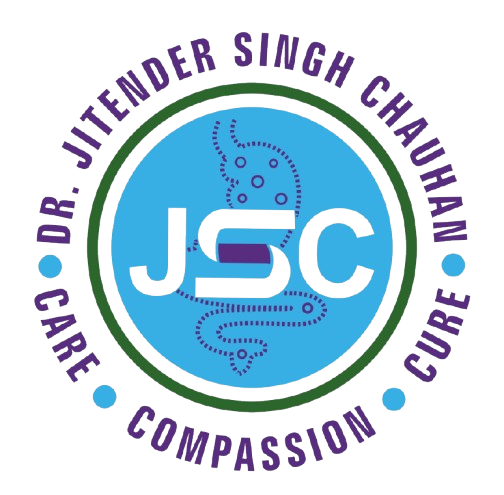Dr. Jitender Singh Chauhan
Best Onco Surgeon in Haryana
This is where Dr. Jitender Singh Chauhan steps in as one of the most trusted Gastro Surgeons and Oncology experts in Haryana, with over 15 years of experience in treating various complex gastrointestinal and oncological conditions. Dr. Jitender Singh Chauhan stands out among other specialists in Haryana due to his extensive training, compassionate care, and dedication to providing the best surgical outcomes for his patients.


Dr. Jitender Singh Chauhan
Dr Jitender Singh chauhan is the leading liver cancer specialist in India. He has treated hundreds of patients with liver cancers. He has more than 15+ years of experience in treating liver cancer.
Management of liver cancer involves proper diagnosis & early treatment. Diagnosis is performed with Triple phase CT scan & AFP level. The treatment involves surgery, chemotherapy, TACE, TARE or RFA.
Trusted Name
11500+ satisfied patients
Rich Experience
Having 15+ years of experience
Safe Surgical Hands
1000+ successful operations performed
Dr. Jitender Singh Chauhan Experience as a Robotic surgery doctor
Dr. Jitender Singh Chauhan, a highly experienced and skilled GI cancer specialist and surgical oncologist, is based in Ambala Cantt, Haryana, India. Known for his exceptional surgical precision and compassionate patient care, Dr. Chauhan has established himself as a leading expert in gastrointestinal cancer surgeries. His expertise spans across treating complex cases involving liver, stomach, pancreas, and colorectal cancers, positioning him as one of the top oncologists in the region.
Dr. Jitender Singh Chauhan is recognized not only as a leading GI cancer specialist in Ambala Cantt, Haryana but also across the state and beyond. Known for his exceptional surgical precision, Dr. Chauhan’s expertise spans a wide array of advanced surgical techniques, tailored to achieve the best possible outcomes for patients with complex gastrointestinal cancers. His commitment to innovation and patient care ensures that his approach is both cutting-edge and minimally invasive.
Dr. Jitender Singh Chauhan’s pioneering contributions in gastrointestinal cancer surgery have established him as a leader in the field, particularly across Haryana and India. His innovative approaches to surgical interventions, combined with his vast expertise in complex GI cancer surgeries, position him as a preferred choice for individuals seeking advanced and compassionate cancer care.

Robotic Surgery
Robotic surgery is an advanced form of minimally invasive surgery, performed with the assistance of robotic systems. Using tiny instruments attached to a robotic arm, the surgeon controls the movements through a computer, allowing for greater precision, flexibility, and control than is possible with traditional techniques. The robot provides a high-definition, 3D view of the surgical site, making it easier to perform complex procedures with fewer and smaller incisions.
Types of Robotic Surgery
A wide variety of surgeries can now be performed using robotic-assisted techniques, including:
- Adrenal gland removal
- Appendectomy
- Bladder removal
- Cancer surgeries
- Cyst, fibroid, and tumor removals
- Endometriosis surgery
- Esophageal surgery
- Gallbladder removal
- Gastric bypass surgery
- Hernia repair surgery
- Kidney removal
- Prostate removal
- Rectal prolapse repair
- Removal of part of the bowel or liver
- Spleen removal
- Stomach removal
- Urological surgeries
- Gynecological surgeries
Doctors also use robotic surgery for precise cancer treatments and for procedures where a high degree of accuracy is needed to avoid damaging surrounding tissues and organs.
Preparing for Robotic Surgery
Your doctor will give you specific instructions on how to prepare for robotic surgery. Be sure to provide a full list of medications you are taking, as some may need to be paused before the procedure. These might include:
- Blood thinners (anticoagulants)
- Nonsteroidal anti-inflammatory drugs (NSAIDs) such as aspirin and ibuprofen
- Herbal supplements or vitamins like Vitamin E
You’ll also need to fast for about 8 hours before surgery and wear loose, comfortable clothing for when you go home.
Robotic Surgery Procedure
Before the surgery, imaging tests, blood tests, or urine tests may be required. An IV will be placed to provide fluids and medications, including anesthesia, during the procedure. A breathing tube will be inserted to keep your airway open, and your skin will be cleaned with a disinfectant solution.
Once the procedure begins, small incisions will be made for inserting the camera and robotic instruments. The robotic arms hold the instruments and are controlled by the surgeon from a console. Using these robotic arms allows the surgeon to perform highly intricate movements that may be difficult with conventional surgery.
As with laparoscopic surgery, the abdomen is inflated with carbon dioxide to create space for the surgeon to work.
Robotic Surgery Recovery
Robotic surgery typically leads to faster recovery times and less discomfort compared to traditional open surgery. Here’s what you might experience during recovery:
Nausea: You may feel nauseous after surgery. Clear liquids and soft foods are recommended until nausea subsides.
Shoulder Pain: Leftover gas from the procedure may cause discomfort in your shoulders, but this should resolve in a day or two.
Incision Pain: Your doctor will provide instructions for wound care. If you notice swelling, redness, or discharge, contact your surgeon immediately.
Abdominal or Pelvic Pain: While discomfort is expected initially, worsening pain could be a sign of a complication.
Expect some tiredness, soreness, and trouble sleeping for the first few days, but these should improve over time.
How Long Does it Take to Recover from Robotic Surgery?
Recovery depends on the type of surgery performed, but most patients recover from minor surgeries within 2-3 weeks. Major procedures may require up to 6-8 weeks for full recovery, though patients often return to light activities sooner.
Benefits of Robotic Surgery
Laparoscopic surgery has several advantages over traditional surgery. Because it involves less cutting:
- You have smaller scars.
- You get out of the hospital quicker.
- You’ll feel less pain while the scars heal, and they heal quicker.
- You get back to your normal activities sooner.
- You may have less internal scarring.
- You’ll have a reduced risk of wound infection.
- You’ll have a reduced risk of hemorrhage.
- You’ll need less pain medication.
For example, with robotic surgery for procedures like prostate or kidney removal, patients might only need a couple of days in the hospital, compared to a week with open surgery, and can return to normal activities much sooner.
Why Choose Dr. Jitender Singh Chauhan?
Dr. Jitender Singh Chauhan brings a wealth of experience in acute abdomen surgery, ensuring that patients receive the best possible care. His personalized and patient-centered approach helps patients and their families feel supported throughout the entire treatment process.
Dr. Chauhan’s practice is equipped with the latest medical technology, enabling accurate diagnoses and efficient surgical treatments.
From emergency admission to the final stages of recovery, Dr. Chauhan and his team provide holistic care that addresses both the physical and emotional needs of the patient.
Frequently Asked Questions
Robotic surgery uses advanced robotic systems to perform complex procedures with precision through small incisions.
Smaller scars, less pain, faster recovery, and fewer complications.
Surgeries such as prostate removal, gallbladder removal, hernia repair, and various cancer treatments.
Yes, when performed by an experienced surgeon, robotic surgery is considered very safe.
Recovery times vary but are typically faster than traditional surgery, ranging from 2-8 weeks depending on the procedure.
Robotic surgery involves smaller incisions and greater precision, leading to less tissue damage and quicker recovery.
Most patients can resume light activities within 1-2 weeks and full activities within 4-6 weeks.

